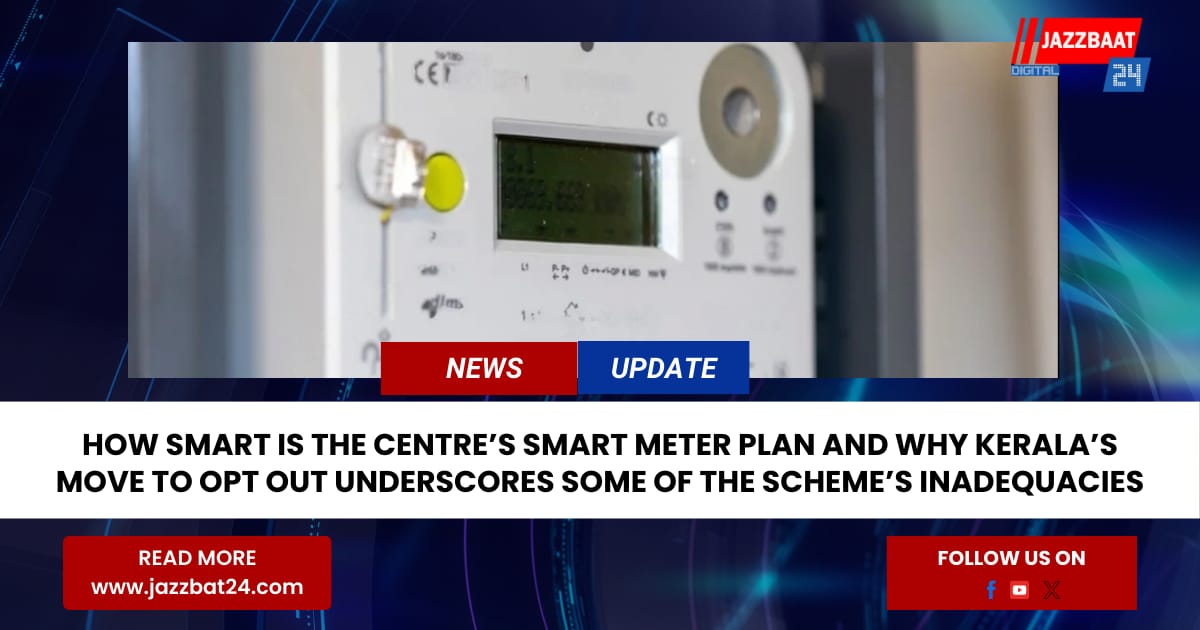The Centre's ambitious plan to deploy smart meters nationwide has come under scrutiny following Kerala's decision to opt out of the scheme. This move by Kerala sheds light on several inadequacies in the implementation of the smart meter program, prompting calls for a reevaluation of strategies to ensure its effectiveness.
Smart meters are touted as a key component of modernizing India's electricity infrastructure, offering benefits such as improved energy efficiency, accurate billing, and real-time monitoring. However, Kerala's decision to withdraw from the scheme raises questions about the feasibility and efficacy of the initiative.
One of the primary concerns cited by Kerala is the financial burden associated with the installation of smart meters, particularly for consumers in rural and low-income areas. The high upfront costs and lack of adequate subsidy schemes make it challenging for states like Kerala to justify the investment in smart meter technology.
Furthermore, Kerala's experience underscores the need for a more nuanced approach to smart meter deployment, taking into account the diverse socio-economic realities and infrastructure challenges across different regions. One-size-fits-all solutions may not be suitable for states with unique energy consumption patterns and distribution networks.
Another issue highlighted by Kerala is the lack of clarity regarding the long-term benefits of smart meters, particularly in terms of energy savings and cost reduction. Without concrete evidence demonstrating the return on investment, states are understandably hesitant to commit significant resources to the deployment of smart metering infrastructure.
Additionally, concerns have been raised about data privacy and cybersecurity risks associated with smart meters, especially given the sensitive nature of electricity consumption data. States like Kerala are rightfully cautious about potential breaches of privacy and the need to safeguard consumer information from unauthorized access.
In light of Kerala's decision and the broader challenges facing the smart meter program, there is a growing consensus on the need for a more holistic and inclusive approach to energy management. This includes exploring alternative technologies, such as prepaid meters and demand-side management solutions, that may offer similar benefits at a lower cost.
Moreover, there is a call for greater collaboration between the Centre and states in designing smart meter policies and incentivizing adoption through targeted support measures. By addressing the concerns raised by Kerala and other states, policymakers can ensure that the smart meter program delivers tangible benefits to consumers while promoting sustainable energy practices.
In conclusion, Kerala's move to opt out of the Centre's smart meter scheme highlights the need for a critical reassessment of the initiative's implementation. By addressing concerns related to cost, effectiveness, privacy, and security, policymakers can lay the groundwork for a more successful and inclusive transition to smart energy management systems.





